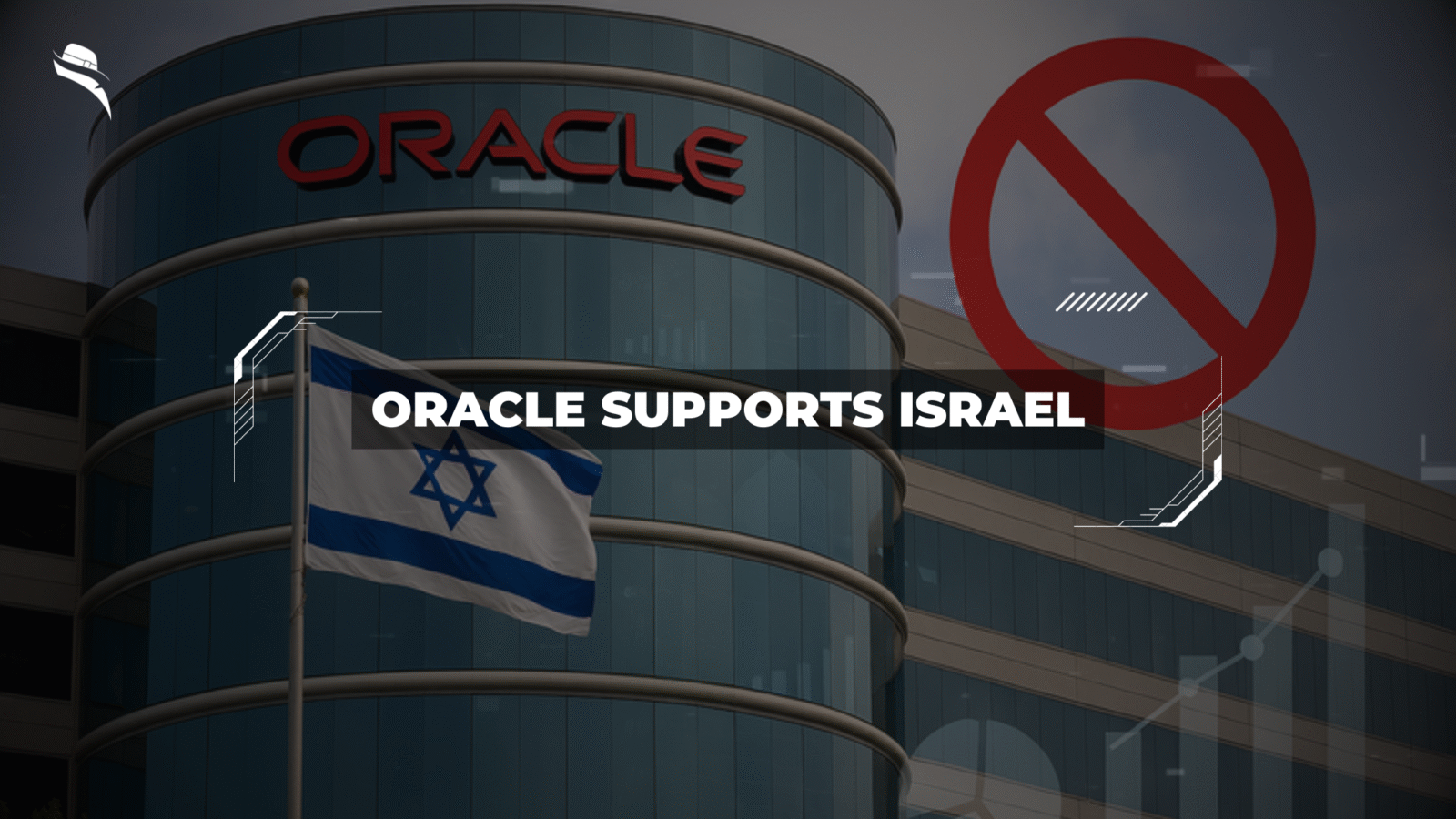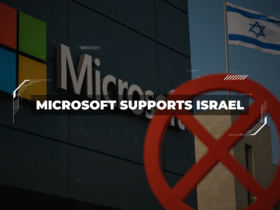Oracle supports Israel through substantial financial investments and strategic partnerships that have sparked both praise and controversy. The tech giant’s Chief Technology Officer, Larry Ellison, announced plans to spend $10 billion on constructing computing facilities in Israel in 2025. This commitment comes despite Oracle’s exclusion from Project Nimbus, a major information technology cloud project that was ultimately awarded to competitors Google and Amazon.
Meanwhile, Oracle’s involvement in Israel’s data management infrastructure has grown significantly, with the company developing underground data centers specifically designed to withstand physical attacks, including missile strikes. Furthermore, Oracle Israel Government Contracts provide substantial benefits, including Oracle Cloud and Database 23ai services available across the full spectrum of US security levels with various authorizations. Despite being outbid on Project Nimbus Israel, Oracle continues to expand its presence in the region.
In fact, Oracle’s Israeli CEO, Safra Catz, has taken a firm stance on the company’s partnerships, stating that employees dissatisfied with Oracle’s collaboration with Israel “have no place in the company”. This article examines Oracle’s growing footprint in Israel, the controversies surrounding these relationships, and the broader implications for the tech industry.
Oracle Supports Israel, Project Nimbus, and Why It Matters
Project Nimbus represents Israel’s ambitious cloud infrastructure initiative aimed at modernizing government operations through advanced cloud computing capabilities. Launched in 2019, this flagship project serves as the cornerstone of Israel’s digital transformation strategy.
Overview of the $1.2B contract
Project Nimbus is a $1.2 billion cloud computing contract designed to provide comprehensive cloud services to the Israeli government, defense establishment, and associated public entities. The project’s primary goal is to transition government ministries and agencies from on-premises infrastructure to cloud-based solutions while ensuring data sovereignty and security. Essentially, the contract requires winning vendors to establish local cloud sites that keep information within Israel’s borders under strict security protocols.
The Israeli Finance Ministry structured the initiative into four distinct phases:
- Purchasing and constructing cloud infrastructure
- Developing government policies for cloud migration
- Executing the transition to cloud services
- Implementing and optimizing cloud operations
Oracle’s initial involvement and later exclusion
Oracle, alongside Microsoft, IBM, Google, and Amazon, initially participated in the competitive bidding process that began in January 2020. Nevertheless, both Oracle and Microsoft were eliminated during the first evaluation phase, with their price bids never even reviewed. Following this decision, Oracle filed multiple appeals—first to the tenders committee, then to the Tel Aviv District Court, and subsequently to the Supreme Court.
Oracle’s CEO, Safra Catz, personally intervened in the appeal process, arguing that civilian data should be stored underground for maximum security—a capability Oracle claimed it uniquely possessed through recently acquired Israeli underground server farms. However, government officials countered that above-ground facilities with proper geographic dispersion would provide adequate protection.
Comparison with Google and Amazon roles
Although Oracle advocated for its underground data storage solution, Google and Amazon ultimately secured the contract in April 2021. Under the agreement’s terms, neither company can deny services to any particular Israeli government entity, nor can they withdraw due to boycott pressure. Additionally, both winners are contractually required to establish three separate server farms within Israel to ensure continuous operations.
Google’s services include processing power for applications and AI tools capable of analyzing images and videos to detect objects. The contract stipulates that Amazon will handle approximately 70% of government activity compared to Google’s 30%.
Oracle’s Cloud and Military Integration in Israel
Beyond the Project Nimbus competition, Oracle has established a substantial military-focused presence in Israel through specialized infrastructure investments.
Oracle’s underground data centers
Oracle constructed fortified underground data centers in Israel, specifically designed to withstand missile attacks and other physical threats. These facilities represent a unique selling point that Oracle CEO Safra Catz personally highlighted during the company’s Project Nimbus bid appeals. The underground server farms, recently acquired by Oracle, provide exceptional security advantages for sensitive government and military operations. Unlike standard cloud facilities, these hardened locations offer protection against conventional warfare scenarios—a feature particularly valuable given regional security concerns.
AI and cloud services for the Israeli military
The company offers tailored AI capabilities and cloud services to the Israeli defense establishment through Oracle Government Cloud. These technologies support military intelligence operations, enabling advanced data analysis, pattern recognition, and predictive modeling for security applications. Oracle’s Database 23ai services are available across various US security classification levels, facilitating sensitive information processing within secure environments. These solutions help Israeli military units process vast amounts of information for tactical and strategic decision-making.
Oracle’s partnerships with Israeli defense units
Oracle maintains direct partnerships with specialized Israeli defense and intelligence units. These collaborations focus on developing custom solutions for military applications while supporting Israel’s broader defense technology ecosystem. Chief Technology Officer Larry Ellison’s $10 billion commitment to expanding Oracle’s computing facilities in Israel further cements these relationships. Moreover, CEO Catz has taken an uncompromising stance regarding these partnerships, clearly stating that employees opposed to Oracle’s Israel collaborations “have no place in the company.”
Employee and Public Backlash
Tensions have mounted at major tech companies as employees challenge corporate collaborations with Israel. The dissent reflects growing ethical concerns about technology’s role in military operations and human rights issues.
Tech worker protests and sit-ins
At Oracle, 68 employees signed an open letter criticizing the company’s partnerships with Israel. Many staff members described “an environment of fear,” with some actively seeking employment elsewhere. One Egyptian engineer, Dr. Mahmoud Sobhy, resigned after learning about founder Larry Ellison’s financial support for Israeli forces. Similar activism emerged at other tech giants, with Google employees staging sit-ins at offices in New York, California, and Seattle, opposing the $1.2 billion Project Nimbus contract.
Firing of employees and corporate response
Tech companies have responded firmly to internal activism. Oracle reportedly terminated an employee for creating a Palestinian solidarity logo that violated company branding policies. Google fired approximately 50 workers following protests against its Israel contracts. Likewise, Microsoft dismissed employees who organized a Palestinian refugee vigil. Oracle CEO Safra Catz has been particularly uncompromising, reportedly referring to pro-Palestinian groups as “brainwashing organizations” and suggesting employees who disagree with Oracle’s mission to support Israel might not belong at the company.
Concerns over AI misuse and surveillance
Workers have raised specific ethical concerns about AI technologies potentially enabling human rights violations. Former Microsoft employee Hossam Nasr described cloud and AI as “the bombs and bullets of the 21st century”. Notably, Oracle’s Endeca software was previously used by US law enforcement to pre-arrest demonstration leaders during anti-NATO protests. These concerns highlight the growing tension between corporate interests and employee ethical standards regarding military-grade technology applications.
Legal, Ethical, and Financial Implications
Oracle’s strategic investments in Israel have generated significant consequences beyond operational considerations. These extend to financial risks, legal questions, and reputational challenges.
Fiduciary risks from controversial investments
Larry Ellison’s announced $10 billion investment in Israeli computing facilities comes at a precarious time for the Israeli economy. Standard & Poor’s and Moody’s have both downgraded Israel’s credit rating, with Moody’s warning the country risks sinking to “junk” status due to “exceptional geopolitical risk”. Consequently, several Israeli tech companies, including Riskified and Papaya Global, have already withdrawn investments. These economic uncertainties potentially expose Oracle to substantial financial vulnerability through its continued heavy investment.
International law and human rights concerns
Legal experts have highlighted potential complicity issues. According to a recent legal opinion, “Business activities may be considered directly linked to the commission of a crime during an armed conflict if they provide direct support – for example, military, logistical, intelligence, or financial assistance”. Oracle’s services reportedly enable the Israeli military to compile and analyze data collected through mass surveillance, including phone calls and text messages. Such involvement raises serious questions about Oracle’s legal exposure under international humanitarian law.
Impact on Oracle’s global reputation
Oracle’s unwavering pro-Israel stance has created internal divisions. CEO Safra Catz’s statement that employees dissatisfied with Oracle’s Israel partnerships “have no place in the company” has alienated staff. Furthermore, relief organizations supporting Palestinians were removed from Oracle’s internal donation matching program. These actions have created what employees describe as a “horrible environment” where people are “terrified to even mention Palestine”.
For a broader look at how global tech companies are shaping Israel’s digital infrastructure, read our main piece: Tech Companies That Support Israel
Final Thoughts
CEO Safra Catz’s unwavering commitment to Israel remains evident through Oracle’s continued investments and support. Under her leadership, Oracle donated one million dollars to Magen David Adom and launched an internal fundraising campaign among its 150,000 employees worldwide, generating an additional million dollars. This financial support extends beyond institutional donations to practical assistance, with Oracle employees purchasing 20,000 NIS worth of LEGO for children evacuated following the October 7 attacks, supplemented by an extra 10,000 NIS from the company.
Throughout the ongoing conflict, Catz personally visited Israel—her first international trip since before the COVID-19 pandemic. Indeed, she met with high-ranking officials, including Prime Minister Benjamin Netanyahu, President Isaac Herzog, and Defense Minister Yoav Gallant. During these meetings, she discussed opportunities in artificial intelligence and cloud computing with Netanyahu, as well as potential security assistance with Gallant.
Certainly, Oracle’s future plans include opening a second underground data center in Israel, located nine floors below ground level. “Israel must have a secure cloud, so it will be nine floors underground, with the aim of not jeopardizing business survival,” stated Catz. This reinforces Oracle’s approach to data security in the region, as the company already operates government cloud regions in multiple countries with consistent global pricing.
After visiting affected communities, Catz remarked, “The State of Israel is not only the heroic soldiers I saw, but also the families and survivors… I leave very optimistic”.
FAQs
1. What is Oracle’s financial commitment to Israel?
Oracle plans to invest $10 billion in building computing facilities in Israel by 2025, despite being excluded from the Project Nimbus contract.
2. Why was Oracle excluded from Project Nimbus?
Oracle, along with Microsoft, was eliminated in the first evaluation phase of the bidding process. Their price proposals were never reviewed, prompting Oracle to file multiple appeals, all of which were rejected.
3. What is Project Nimbus, and who won the contract?
Project Nimbus is a $1.2 billion Israeli cloud infrastructure project awarded to Google and Amazon in 2021. It aims to modernize government and defense digital systems while enforcing strict data sovereignty requirements.
4. What makes Oracle’s data centers in Israel unique?
Oracle operates fortified underground data centers in Israel, designed to withstand missile attacks and physical threats—features that Oracle emphasized during its Nimbus bid.
5. Is Oracle working with the Israeli military?
Yes. Oracle provides AI and cloud services to the Israeli military, enabling advanced intelligence processing, predictive modeling, and secure data operations through Oracle Government Cloud and Database 23ai.
6. What did Safra Catz say about Oracle’s partnership with Israel?
Oracle CEO Safra Catz has stated that employees who disagree with Oracle’s support for Israel “have no place in the company,” reinforcing the company’s firm stance on its partnerships.
7. How have Oracle employees reacted to its stance on Israel?
At least 68 Oracle employees signed an open letter opposing the company’s collaborations with Israel. Some have resigned, and others report an environment of fear when discussing Palestinian issues.
8. Have any Oracle employees been fired over pro-Palestine views?
Yes. Oracle reportedly fired an employee who created a Palestinian solidarity logo. Other tech companies like Google and Microsoft also terminated workers who protested their ties to Israel.
9. What are the legal concerns surrounding Oracle’s support for Israel?
Experts suggest Oracle’s military collaborations could raise issues under international humanitarian law, especially if its services support surveillance or intelligence that contribute to armed conflict.
10. How might Oracle’s investments in Israel affect its finances?
Oracle’s $10 billion investment comes amid Israel’s economic instability. Credit downgrades and corporate withdrawals pose financial risks to Oracle’s long-term operations in the region.
11. Has Oracle taken any humanitarian actions in Israel?
Yes. Oracle donated over $2 million through internal and corporate fundraising, including aid to Magen David Adom and support for displaced children in Israel following the October 7 attacks.
12. What is Oracle’s future in Israel?
Oracle plans to open a second underground data center located nine floors below ground level, continuing its long-term commitment to data security and regional partnerships in Israel.







Leave a Reply